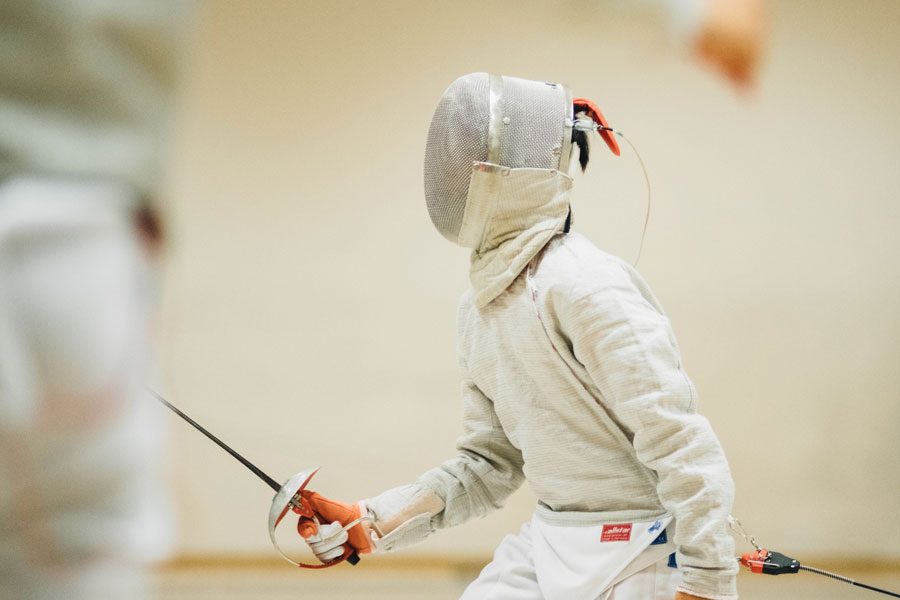1. Join a club or society
At the beginning of the academic year, there are freshers' fairs at Universities across the UK where various clubs and societies introduce themselves and encourage you to sign up as a member. They often offer 'give it a go' sessions for you to try before you buy! So take this opportunity to step out of your comfort zone and try something new (even if it's only once!). You can join societies relating to your degree, your goal career path, something that can be a hobby, or even something completely random that you have always wanted to try, like Chess club. A society that I have joined at my University is the volunteering society. My membership to this has opened many doors for me during my University year. I was able to become Child Protection trained through joining this society which is something I can now put on my CV. I had great opportunities to work with the young and elderly, boosting my communication and leadership skills. Doing so was also a great way to relax from revision too.
After becoming a member of a society, you will be able to apply for a role on the committee towards the end of the end of the year which looks even better on your CV. If you can gain a role on the committee, you will be able to boast many more skills, such as organisation and leadership. Through this, your time at university will become more enriched and these experiences will follow you through the rest of your life.
A society that I have joined at my University is the volunteering society. My membership to this has opened many doors for me during my University year. I was able to become Child Protection trained through joining this society which is something I can now put on my CV. I had great opportunities to work with the young and elderly, boosting my communication and leadership skills. Doing so was also a great way to relax from revision too.
After becoming a member of a society, you will be able to apply for a role on the committee towards the end of the end of the year which looks even better on your CV. If you can gain a role on the committee, you will be able to boast many more skills, such as organisation and leadership. Through this, your time at university will become more enriched and these experiences will follow you through the rest of your life.
2. Look for a part-time job
Another way to gain experience at university is through applying for a job. Now, university can be a handful and I would never advise anyone to jeopardise their grades for a job, however there are plenty of zero or low hour vacancies available for you to apply for. A simple search for part-time jobs in your area should do the trick, but even better, try and hand in your CV face to face for a more personable approach. Roles such as brand ambassadors for companies are great as they allow you to choose when you work, so it works around your life and timetable.3. Use your careers services
 Signing up to receive updates and information on potential jobs via your Universities careers department is another great way to gain experience. I receive countless emails about different workshops taking place at my university, as well as career fairs, taster days, and many other relevant events.
Signing up to receive updates and information on potential jobs via your Universities careers department is another great way to gain experience. I receive countless emails about different workshops taking place at my university, as well as career fairs, taster days, and many other relevant events.
4. Apply for spring weeks, internships and insight days!
This is very useful for those who do (and do not!) know what they aspire to do in the future. Firms in various industries host these events through the year, usually during the breaks. Insight days are fairly self-explanatory - you receive a brief insight into working for the firm. A spring week is almost like a more in-depth insight day, or a short-term internship. An internship usually lasts from 2 weeks to three months. You would be working for the firm during this period and learning about working life in general, as well as how the company in question operates. I strongly encourage you to apply for these, as they give you a chance to test the waters for different careers and offer you some great extra embellishment for your CV.5. Actually go to careers events
 Sometimes speakers may come to give a talk at your university... go to them! It may sound 'boring' but you never know how this talk could affect you. You could meet many inspirational people who can offer you great advice. Other events you can go to are workshops and conferences. These are great for hearing new information and engaging with topics you had never even thought about before. You'd be surprised by how much insight you can gain by attending.
These 5 points may sound time consuming, but you really do have the time and this will truly benefit you in the long run. These activities are not just great for employability, but also for personal development. By working on diversifying your skills, you will be able to find out new things about yourself in turn. Keep an open mind and enjoy your hunt for new experiences!
Sometimes speakers may come to give a talk at your university... go to them! It may sound 'boring' but you never know how this talk could affect you. You could meet many inspirational people who can offer you great advice. Other events you can go to are workshops and conferences. These are great for hearing new information and engaging with topics you had never even thought about before. You'd be surprised by how much insight you can gain by attending.
These 5 points may sound time consuming, but you really do have the time and this will truly benefit you in the long run. These activities are not just great for employability, but also for personal development. By working on diversifying your skills, you will be able to find out new things about yourself in turn. Keep an open mind and enjoy your hunt for new experiences!
About The Author: Eunice Odunlami is an International Relations student studying at the University of Leeds. She is also a super fan of Game of Thrones!




